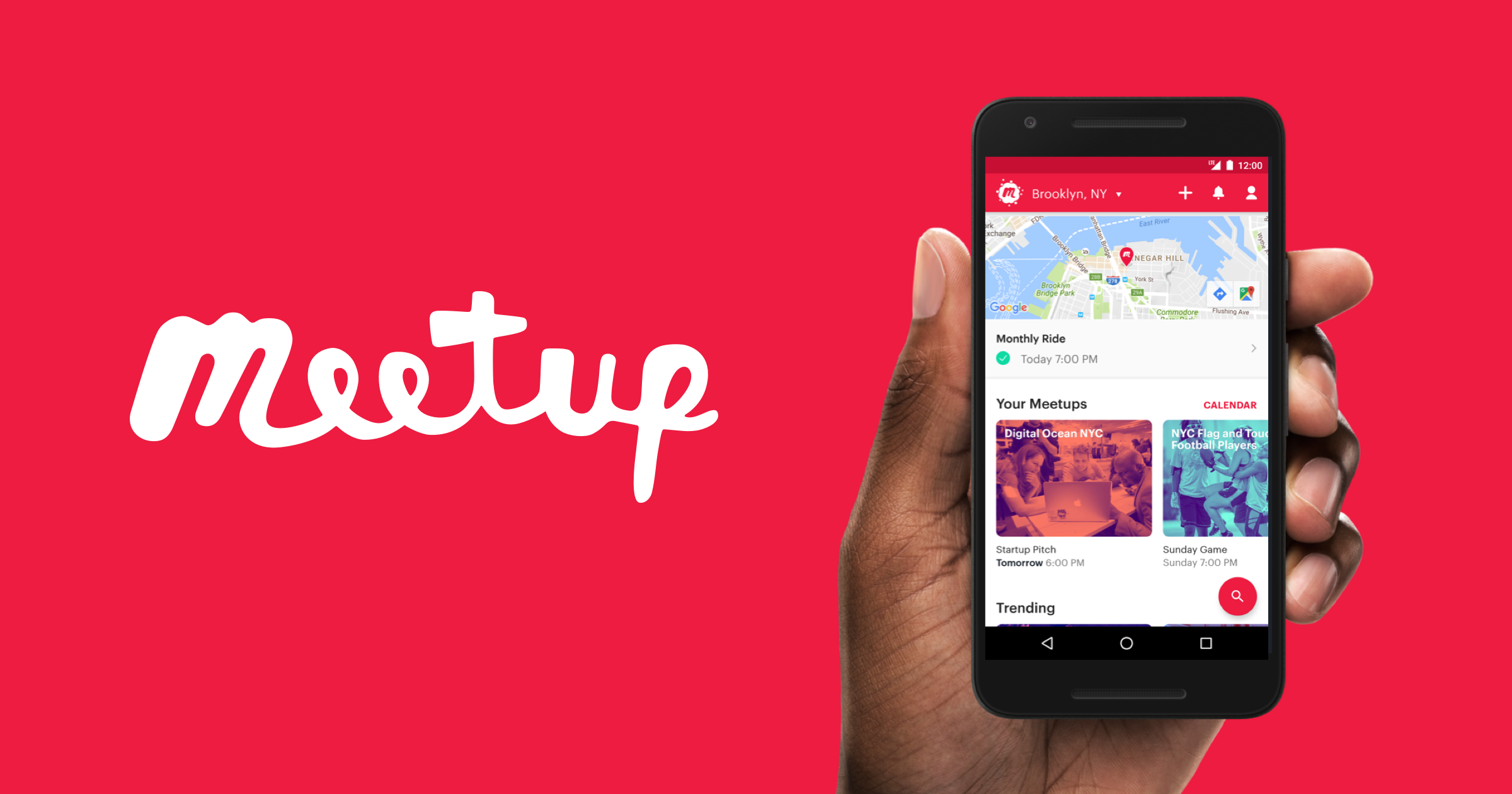
Image source: https://www.meetup.com/apps/
Recommendation engines are super simple or atleast, they are made to seem super simple by the countless number of online tutorials that uses either a movie or a song dataset. This project focuses on building a recommendation system from scratch - extract real data, structure it and build several recommendation systems.
Meetup is service used to organize events for users with similar interests. Meetup generates revenue from the group owners - the higher the number of members in the groups, the higher the membership fee/revenue. Evidently, any significant improvement in the engagement of the users would result in increased revenue. One of the ways to increase engagement is to personalize the events/groups recommendation in the meetup platform so that users are encouraged to attend more events. In this project, a few recommendation systems were built using the data extracted from the meetup API.
The recommendation system was evaluated using the Area Under the ROC curve for a fixed recommendation set size.
- Data Source: Extracted data of Austin, Texas using Meetup API to extract JSON objects of events, groups, rsvp counts etc.
- Data wrangling to create user-item matrix using implicit feedbacks
- RSVP counts: Number of times a user has attended a group's event
- TimeDelta: The number of days between a user joined the group and the last event he attended of that group
- Hyperparameter tuning using PySpark on the Databrick platform
- Final recommendations using the selected hyperparameters
- ALS using RSVP Counts:
- AUC(model): 0.761
- AUC(popular recommendations): 0.837
- ALS using TimeDelta:
- AUC(model): 0.809
- AUC(popular recommendations): 0.859
Eventhough the model could not outperform the baselines, it is a great starting point. New systems could be built using different algorithms to produce better results. Having said so, it does not mean that the recommendations are not inappropriate. The recommendation system was used to recommend one of our classmates the groups she might be interested to be part of and most of them aligned with the topics she likes (based on her RSVP counts).
- Starter code has been taken from Sumit Kumar Arora.